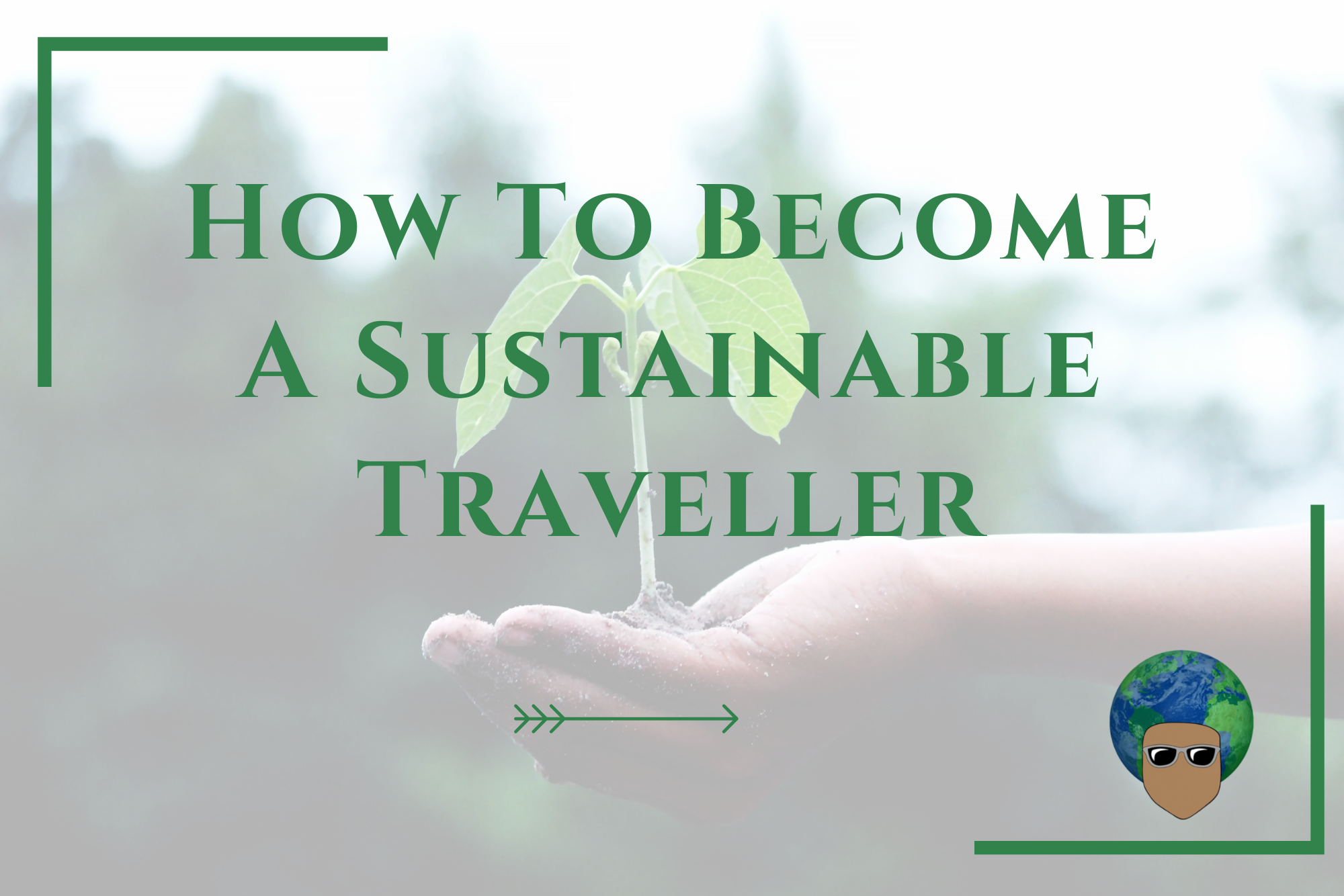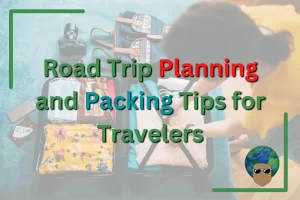Travelling brings out the best of us, but we should also focus on what’s best for our planet. We can experience free diving into a cenote in Mexico, partying in the streets of Rio de Janeiro or visiting the pyramids of Giza and still be sustainable. Supporting local economies, protecting wildlife i.e., not touching the coral, avoiding plastic, and reducing our impact on the planet are some of the many ways to help make this happen.
The global population is continuing to grow and with that, they would require to drain resources from the earth to survive. Travelling to developing countries I witnessed the struggle and the unfair distribution of consumption & wealth. More than thirty percent of the world continues to live in poverty with limited access to food, water and energy.
When travelling it’s beneficial to know positive ways to spend our hard-earned money, that can contribute to ways we can be proud of. Travelling sustainably could go a long way, the motto I go with is “live like a local, travel like a local”.
So what is sustainable travelling?
Before placing both terms together, it would be best to understand what the term “sustainable” actually means (as I’m sure you all know what travelling is!). I first came across the term “sustainability” when at university as it plays a huge role within the construction industry (for those that haven’t read my about me section, my degree is in Civil Engineering). To me, in simple terms: sustainability is living in a way as to not affect the future generation.
Sustainable travelling may be worded in different ways, but its core meaning is for travellers to ultimately be responsible for their actions, culturally sensitive to the local’s culture and maintaining the natural environment without harmfully impacting the planet.
Sustainability plays a part in every industry and whether construction or tourism it’s all about respecting the environment and the resources that come with it. I understand that not all of us are burning fossil fuels like Drake when he made a victory lap over the city for celebrating the win of the Toronto raptors! Nevertheless, we should all be more aware of the pollution level caused by travelling and how it affects wildlife, local people, the environment, businesses, and the local culture.
Social apps like Instagram fuel our desire to visit and photograph memorable sites, which leads to more people wanting to visit those certain countries. According to the Oxford Dictionary shortlist, the term overtourism can be defined as “An excessive number of tourist visits to a popular destination or attraction, resulting in damage to the local environment and historical sites and poorer quality of life for residents,”. What’s the first country that comes to mind when I say “overtourism”? Mine was Thailand.
Ways to be a sustainable traveller
One of my mottos when it comes to travelling is “Eat like a local, travel like a local & live like a local” and I carry those words with me like a wallet.
Eat like a local
Help to invest in the local community by buying their food and trust me when I say they make the best food, no matter the appearance of the place!
The local cuisine. I love the aesthetic appearance of how some of the local restaurants and those bike stools that sell food from the back of it are kept and maintained. I would highly recommend spending your money on traditional food, made from the local people, while even having a casual chit chat with them and finding more about the area you’re in, such as activities, travel routes and the nightlife. Avoid chains like KFC and McDonalds where your money doesn’t even help out the local economy.
Be open to local street food. I’ve been advised by many not to eat street food when I first started travelling when they didn’t try it themselves! My advice is don’t be too afraid to eat street food, I’ve honestly tasted great food from street vendors and they’ve handed it to me with a smile which makes it all worthwhile (cheesy I know). However, if you’re looking to be extra careful or still in your early days of travelling it might be best to avoid meat and stick with the vegetarian dishes.
Shop where the local’s shop. Shop in markets and buy the food grown locally from local produces and you can make a day out of it! I always enjoy browsing and seeing things out of the ordinary. I once saw a local in Barcelona selling Ostrich eggs, ever seen the size of them?! Just an FYI they’re huge, they’re equivalent to 20 chicken eggs!. Avoid large food chains and imported food as its transported from miles away causing a larger carbon footprint.
Travel like a local.
The journey. With technology in the palm of our fingers, doing research now is easy, so it won’t be difficult to find out the most sustainable way to get to your destination, bearing in mind the best way is not always the most sustainable way! I work in the railway industry so I would always recommend public transport, preferably trains (as I’m biased toward them) but a lot of countries in Europe such as England now have electrified trains which makes it a carbon-friendly option. Busses is also a great option and cheaper than the trains and let’s not forget about walking, jogging or even cycling. If the journey is more convenient with a car, try to fill up the empty car seats by asking friends or fellow travellers to join you.
Direct flights. I know direct flights are usually more expensive than flights with layover but keep in mind takeoffs and landings cause carbon emissions. So if you’re willing to spend a few bucks and go the extra miles (see what I did there) then I would highly recommend flying direct and saving the stress of a layover, I got stuck in Istanbul once on the way to Singapore and not only did I waste time but I also spent money on food and became quite frustrated, I have a bad habit of eating when bored, annoyed and angry!
Take your time & enjoy the journey. By minimising the use of planes and staying on the ground more, you’ll be able to reduce carbon emissions and admiring the scenery of the country more, from one destination to the next.
Pack Smart. I read once, I can’t remember if it was in a web article or an Instagram post but it went something like “When preparing to travel, lay out all your clothes and all your money. Then take half the clothes and twice the money” and I kid you not I still live by those words. There are laundrettes all over the country you visit some of which are crazy cheap and any money you spend will be supporting the local economy. You can even pick up your clothes on the same day with some (if it’s dropped off at an appropriate time) worst comes to worst you can always wash it in the sink.
Live like a local.
Choose your accommodation wisely. I would always recommend staying in a hostel as its more sociable and you’ll most likely have an enjoyable experience but not only that sharing a living space with others is environmentally friendly as an air-conditioner is shared with a group rather than an individual and you might even find a group to travel with to which you can share a taxi rather than going on your own and not to only mention its usually safer being with people. Then again people do stay in hotels, (including myself at times) it’s important to choose a place that holds itself to environmental standards. Another recommendation is to find out who owns the hotel and choose one whose owner is local, as opposed to a large foreign corporation; that way you know a greater portion of the profits will stay in the community.
Engage in a conversation.
Recycling. Find out if the place you’re staying has a recycling programme and if they do that’s great, I would usually be interested to know how it happens! But If not, find out why not and if there’s no specific reason maybe even encourage them on the benefits without trying to sound like preaching the bible!
Depending on the accommodation of the place, you can ask questions on sustainability initiatives, such as solar power, energy-saving lights, air-conditioning usage and rainwater harvesting.
Share your experience. Sharing your stories with friends and family or any person that asks you about your trip usually makes you sound kinda cool (to some) and some kind of top traveller so top it up with some talk on sustainability. This could be anything from why you would recommend getting public transport over getting a taxi or why you prefer staying in a hostel room with other fellow travellers than staying in a 1-bedroom hotel room by yourself.
Connecting to smart travel options. Using apps and websites, such as mine! But in seriousness, we all talk about the destination but some of us miss the importance of the journey, services like ecopassenger.org help compare different routes in terms of their emissions. If you want to know how to travel around Asia and Africa, there are websites with blogs such as seat61.com that can help advice on train journeys.
My final words.
Not all places consider sustainability as an important factor (especially countries that are in a developing stage) but the places that do consider themselves sustainable usually have strong economic, environmental, and social performances.
The whole Covid pandemic has shown us the importance of sustainability and how much of a difference the world has become with everyone working from home and rarely travelling which is all the more reason that we have to travel sustainably.




